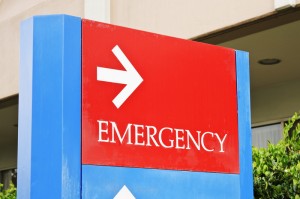When the Affordable Care Act (ACA) launched in January, it was expected to reduce rampant crowding in hospital emergency departments, which many uninsured used as a primary care provider. That goal may have fallen short, according to an online study conducted by the American College of Emergency Room Physicians (ACERP). That study found nearly half of its members have seen a rise in visits since January 1, and 86% of those physicians indicated they expect the number of emergency department visits to grow.
Alex Rosenau, an emergency department physician in Allentown, Pa, says one reason behind the increase in emergency department visit is a growing shortfall of primary care physicians. Without access to a private doctor, many individuals still rely on emergency departments for primary care. Elsewhere in Pennsylvania, emergency department visits in Philadelphia were reportedly 8% higher in June than in November 2013, according to the Delaware Valley Healthcare Council and a news article published in The Philadelphia Inquirer.
“We are seeing some folks who have new insurance but they just can’t get access to primary care,” said Theodore Christopher, Thomas Jefferson University Hospital’s chairman of emergency medicine. “If you can’t access a primary care doctor, then you are going to go to the emergency department.”
“Insurance does not equal access,” Rosenau says. “They know when they go to the emergency department, they are going to be seen,” he adds.
The Philadelphia Inquirer article also notes that from July 2013 through January 2014, emergency department visits at Thomas Jefferson Hospital’s emergency room fell 6%. However, from February through June of this year, visits increased by 4%. Since July, the start of the hospital’s new academic year, the article reports, “business has been brisk.”
“It’s back to the old days,” says Christopher, who reportedly characterizes himself as a supporter of the ACA. “A lot of emergency department overcrowding, a lot of patients. We are seeing some folks who have new insurance, but they just can’t get access to primary care.”
[Source: The Philadelphia Inquirer]



